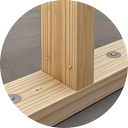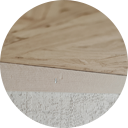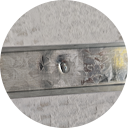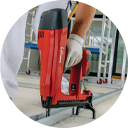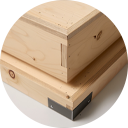What Makes Drywall Screws Different from Standard Fasteners
In construction, picking the right fastener saves time, cuts costs, and keeps your project on track. Drywall screws stand out from standard options like wood screws because they’re built for specific tasks like securing gypsum boards to studs. You’ve likely seen jobs stall when generic screws strip or fail to hold, but drywall screws fix that with sharp threads and clever head designs. For reliable sourcing, check out Qinjia, a Hebei-based expert crafting fasteners since the 1990s. They supply nails and screws to North America, the Middle East, Australia, Southeast Asia, and Turkey, with a tight supply chain and strict quality checks from raw materials to shipping. Their ODM/OEM services let you customize for specific needs. Honestly, nothing beats a screw that just works, especially when deadlines loom.
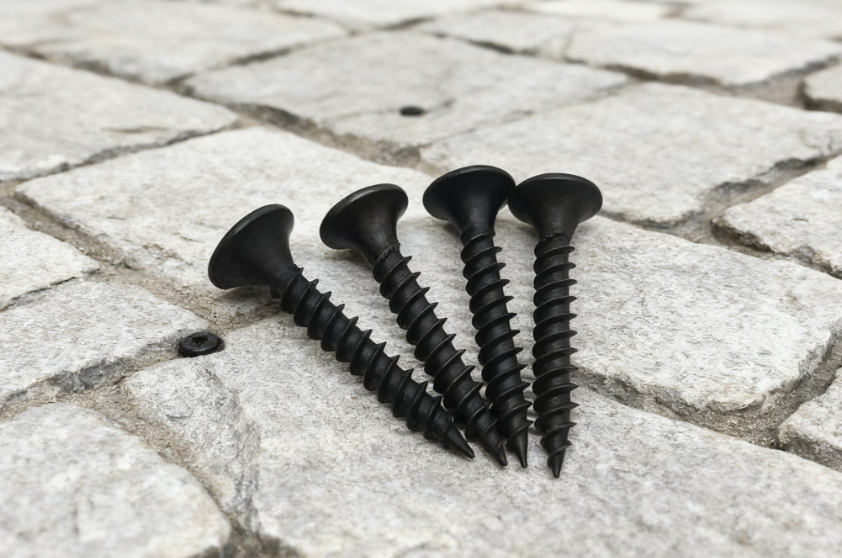
Why Are Drywall Screws Essential for Construction?
You need fasteners that make drywall and partition work quick and sturdy. Drywall screws, unlike generic fasteners, are designed for gypsum boards, offering strong holds in wood or steel studs. They streamline tasks, letting your carpenters and finishers stay in sync.
Specialized Design Features
Drywall screws have sharp, fine or coarse threads for specific stud types. Their bugle head sinks flush, leaving smooth surfaces for painting.
Enhanced Installation Efficiency
These screws drive fast, cutting installation time compared to standard screws. You finish partitions or ceilings without constant rework.
Global Market Compatibility
Exported to the US and Australia, they meet international standards. You get material proofs and inspection reports for smooth trade.
How Do Drywall Screws Differ from Wood Screws?
You might wonder why not just use wood screws for everything. Drywall screws, like the Drywall Screw, are thinner and longer, built for gypsum boards, with features that prevent stripping and ensure tight holds in specific materials.
Thread Type Variations
Coarse threads grip wood studs; fine threads suit steel. This precision avoids the loose fits common with wood screws.
Head Design Benefits
Bugle heads sink without tearing gypsum paper. You get a flat surface, unlike the raised heads of standard screws.
Material and Coating Options
Black phosphated or zinc-plated finishes resist rust. These coatings outlast the basic steel of most wood screws.
What Makes Chipboard Screws Unique for Woodwork?
When working with particleboard or MDF, you need screws that grip without splitting. Chipboard screws, such as the Chipboard Screw provided by Qinjia, excel here, with deeper threads and robust builds tailored for wood composites.
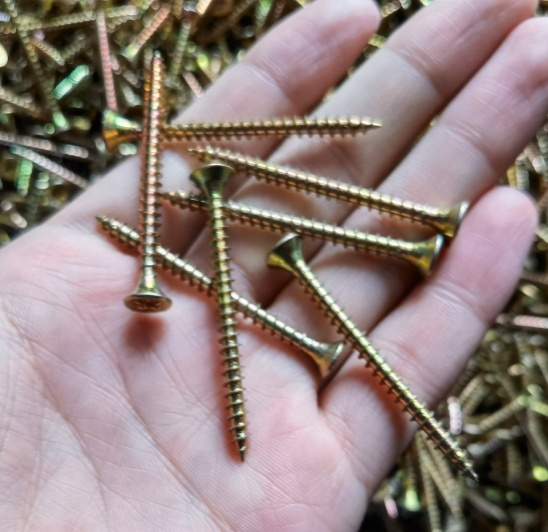
Optimized Thread Patterns
Deep, sharp threads bite into chipboard without crumbling it. You secure panels tightly, unlike standard screws that slip.
Superior Holding Strength
High-carbon steel builds boost durability. They hold firm in furniture or flooring, outpacing weaker generic fasteners.
Versatile Application Range
Diameters like M3.5 to M4.2 fit various wood types. You tackle cabinets or subfloors with one screw type.
How Can Drywall Screws Improve Project Efficiency?
Slow installs or damaged boards frustrate your crew and delay handoffs. Drywall screws speed up fixing gypsum to studs, keeping your project timeline tight and reducing material waste, especially in big jobs like office partitions.
Faster Installation Process
Sharp threads drive smoothly, cutting minutes off each board. You move faster than with standard screws that bind.
Reduced Material Damage
Bugle heads prevent paper tears on gypsum. You avoid costly re-dos that generic fasteners often cause.
Team Workflow Integration
Screws pair with pneumatic tools, syncing carpenters with finishers. Coarse threads for wood studs streamline transitions.
Why Choose Drywall Screws for Global Trade?
Exporting means you need screws that clear customs and meet client specs every time. Drywall screws from trusted lines, shipped to places like Vietnam or South America, come with full inspections, from hardness tests to salt spray checks.
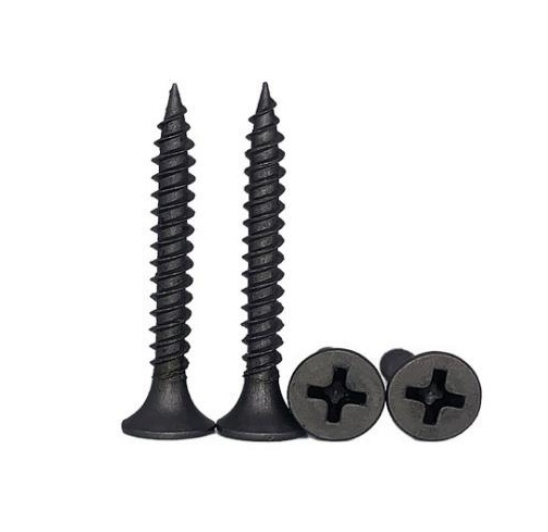
Proven Export Reliability
Years of global shipping build trust. You get packing lists and material proofs for hassle-free deals.
Custom ODM/OEM Solutions
Tailor screws with coatings like zinc for humid markets. You meet buyer needs without extra steps.
Rigorous Quality Standards
Random checks and torque testers keep quality high. Third-party tests like SGS are ready if clients ask.
What Role Do Coatings Play in Screw Performance?
You worry about screws rusting or failing in tough conditions. Coatings on drywall screws, like black phosphating or zinc plating, boost durability and adapt to environments, keeping your projects solid long-term.
Corrosion Resistance Benefits
Zinc or phosphated finishes fight rust in damp settings. You avoid failures that plague uncoated screws.
Environmental Adaptability
Coatings handle indoor or outdoor jobs, from dry offices to humid sites. You pick what fits your climate.
Durability for Long-Term Use
High-carbon steel with coatings lasts through wear. You trust screws to hold walls or ceilings for years.
Where to Source Trusted Drywall Screws for Projects?
You need suppliers who deliver fast, with support from quotes to after-sales. Factories offering mixed containers or clear return policies based on quality checks with photos or videos keep your projects on track.
Direct Factory Access
Contact factories for quick quotes or samples. Fast responses help you start production without delays.
Real-World Case Insights
Examples like partition or ceiling installs show time and cost savings. You see screws’ value in action.
Comprehensive Support Services
Tech guides and spare parts keep jobs running. Feedback-driven tweaks make your supply chain reliable.
FAQ
Q1: Can drywall screws work with wood panels?
A: Coarse-thread drywall screws grip wood studs well, but for chipboard or MDF, chipboard screws are better to avoid splits.
Q2: How do drywall screws prevent gypsum damage?
A: Bugle heads sink flush without tearing paper, unlike standard screws that raise or rip surfaces.
Q3: Are coatings necessary for indoor projects?
A: Black phosphated finishes add rust resistance, even indoors, for longer-lasting holds in humid areas.
Q4: What sizes suit partition walls?
A: Lengths from 25 to 75mm and diameters like M3.5 or M4.2 fit most gypsum-to-stud setups.
Q5: Can you customize screws for export?
A: Yes, ODM/OEM options let you tweak threads or coatings for specific markets, with full inspection reports.


